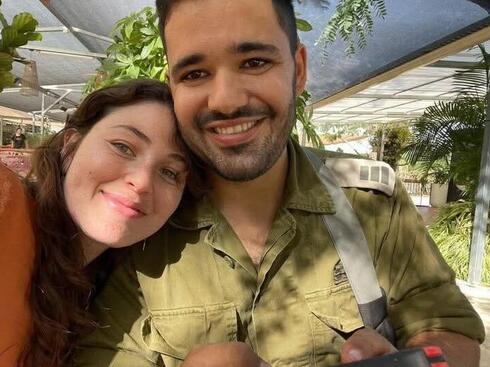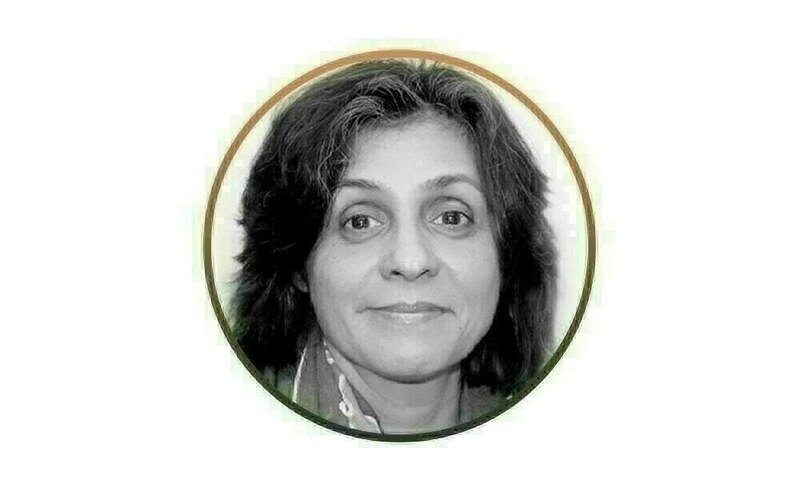‘He saw the baby waving to us on the ultrasound in a video call’: The life and last days of Maj. Shahar Bozaglo
By Yoav Zitun, Israel Moshkovitz
Copyright ynetnews

Adi Homesh, the wife of Maj. Shahar Bozaglo, who was killed Monday during fighting in Gaza City, is in the early months of her pregnancy and struggling to grasp the magnitude of her loss. “There was no holiday meal,” she said Thursday morning. “In the afternoon I got the call, and soon after, IDF representatives came to take me to Soroka Hospital. They said Shachar was seriously wounded. On the way there we prayed it was just an injury, that we would go through a rehab process. Then I heard his mother screaming on the phone that her son was dead. That’s when my trip ended.” It was also cleared for publication Thursday morning that Staff Sergeant Chalachew Shimon Demalash, 21, from Beersheba, a soldier in the 932nd Battalion of the Nahal Brigade, was killed by Hamas sniper fire in Gaza City as part of the ground phase of Operation Swords of Iron II. Adi described Shachar as a complex person: a professional officer and admired commander, but also a loving partner who longed for a simple routine. “He was a poet, a philosopher, a man of resilience. He wrote a detailed plan on building resilience in soldiers. He wanted to be a bridge builder, not a man of slogans,” she said in an interview with Army Radio. In his last position, as a company commander in the 77th Battalion, Shachar told his soldiers: “My most important mission is to bring you home safe and sound.” Adi recalled his final day: “From what we understand, he spotted a threat, led a force of three tanks, and the threat took only him. He protected everyone else.” Adi admitted she lived with fear, but never imagined she’d be left alone. “I told him after this year, that’s enough, let’s go on a release trip. He always said ‘yes’ but without certainty. It was clear to him that his soldiers came first. He went to the army out of a sense of duty, not desire. He loved our home, the sea, the bakery near Bat Galim, our dog. He loved the good life.” At their wedding, Shachar quoted Israeli poet Yehuda Amichai under the chuppah: “I never thought I would miss you forever.” Now, she is preparing for the birth of their son. “I have six months to go. It was my dream to see Shachar as a father. He was so handsome. I imagined him pushing a stroller. He could have been an amazing father.” She recalled the last moment they shared: “On Sunday morning, he saw the baby waving to us on the ultrasound in a video call. A few hours later he called again, and we spoke one last time. That was our final conversation.” Osnat Zohar, Shachar’s mother, told Ynet: “I told him I didn’t want him to go in, and he replied that he had a responsibility. He stood there and gave them a fighting spirit.” She added, “He told me, ‘I won’t fall in battle,’ and I believed him.” Despite the heartbreak, she found one source of light: “We are so happy that Adi is pregnant. We will have something of Shachar left. The child will be a part of us.” Maj. Sagiv, who commanded the 77th Battalion’s company until a month ago, eulogized his friend in a Facebook post. “Shachar was a remarkable person, full of values and leadership—one of those who were meant to lead Israeli society into the future. Every fallen young commander is not just one lost life he affects thousands. A company commander directly impacts dozens of soldiers and indirectly, hundreds of families. I experienced it myself—every word, every decision I made reached each soldier’s home.” He stressed that the loss of young commanders is a double tragedy—for the IDF and for Israeli society at large. “People like Shachar and his comrades were meant to lead us—not only in the army but also in education, business, communities and families. When we lose them, we lose our future. Every death erases the influence of hundreds or thousands. There’s a material substitute for anything—but no substitute for human capital. The combat commanders I knew were the best of the best. If we keep losing them at this pace, we won’t have cream left—just sour cream.” People like Shachar and his comrades were meant to lead us—not only in the army but also in education, business, communities and families. When we lose them, we lose our future In a podcast recorded last year for the IDF Tactical Command College, Shachar shared what it felt like to be on the battlefield and described the horrors of Oct. 7. “There’s something liberating in realizing that getting home is not the main mission. The mission is to be a small cog in the larger effort to restore normalcy,” he said. Bozaglo grew up in Migdal HaEmek and married Adi in August 2023. Just days after the Oct. 7 attack, he candidly shared his emotions on the podcast. “It was Saturday morning. My wife and I had just returned from our honeymoon. I woke up to a phone call from a religious friend. I told her, either there’s a war or he’s gone completely nuts. He said, ‘Bro, get ready. It’s war.’ We turned on the TV, saw what was happening, and couldn’t believe it.” He recalled those harrowing days: “The images were incomprehensible—battle zones like in the Russia-Ukraine war. You drive and see corpses, burned fields, the smell of war. The feeling was adrenaline and excitement. The fear hadn’t arrived yet. At Yiftach Base—many bodies, damaged armored vehicles, combat shock in people’s eyes. Chaos on base.” In his final words to his company before their entry into Gaza on Sunday, he explained that his motivation wasn’t abstract ideology, but the voices of southern Israeli civilians. “There are terrorists killing people in their homes. The natural response is to fight back—not out of some grand idea, but because of the radio broadcasts of crying residents describing how they’re being slaughtered. And also the historical expectation—generations of fighters stood in this moment, invested in me for this moment. It would be disgraceful not to do what I must,” he told the soldiers under his command. He said he didn’t think he’d return and added: “There’s something freeing in understanding that getting home isn’t the main task. The mission is to be a small cog in the larger system of restoring what was.” He described the battle in Kibbutz Nir Am. “It was the first time I physically felt what it means to have shaky knees. My mind was full of my mother and my wife telling me not to take risks—but the responsibility to my team was stronger,” he said. “I slapped myself in the face and climbed into the tank. You have to project confidence—otherwise, it’s over.”



